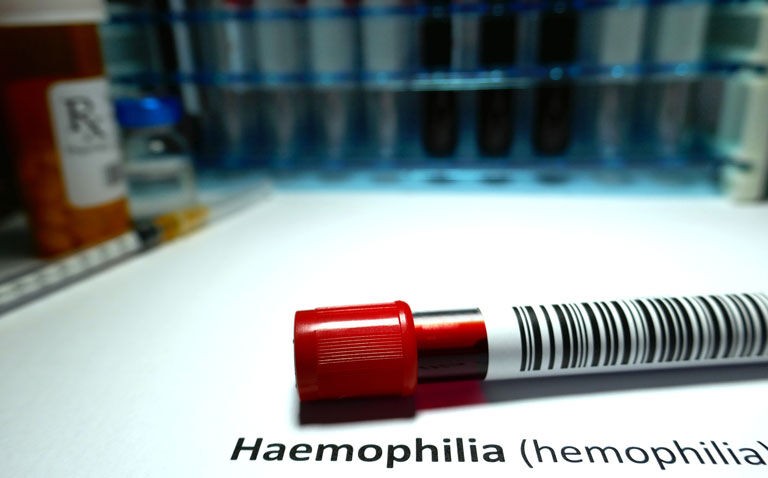Gene therapy use in a Phase II trial for patients with haemophilia B induced sustained increases in factor IX levels in virtually all patients
Gene therapy with FLT180a given to patients who have haemophilia B resulted in elevation of factor IX levels to within the normal range and which was sustained for many months according to the findings of a small, Phase II trial by UK and US researchers.
Haemophilia is an inherited bleeding disorder where the blood fails to clot properly and can lead to spontaneous bleeding. There are two forms of haemophilia – A and B – both of which occur as a result of deficiency or dysfunction of blood clotting factors.
Haemophilia A is due to factor VIII dysfunction and haemophilia B due to factor IX dysfunction and because the genes for these two factors are located on the X chromosome, haemophilia occurs primarily in males.
The current treatment for haemophilia B involves intravenous infusions of factor IX either regularly, i.e., prophylactic therapy, or ‘on demand’ and while the latter is highly effective at stopping bleeding, it cannot fully reverse the long-term damage that follows after a bleed. In recent years, studies have suggested that gene therapy with FLT180a has the the potential to deliver a durable, functional cure for haemophilia B.
FLT180a is an adeno-associated virus gene therapy that carries the factor IX gene and enters liver cells and produces factor IX protein.
For the present study, researchers described the efficacy and safety of FLT180a in patients with severe haemophilia B, defined as factor IX levels < 1% of the normal range (50 to 150IU/dl) and administered four different doses. In addition, all patients received glucocorticoids with or without tacrolimus to reduce the risk of a vector-related immune response.
The researchers set two primary endpoints as safety (based on adverse events) and efficacy, assessed in terms of the level of factor IX induced by FLT180a after 26 weeks. Secondary endpoints included the change in annualised bleeding rates and consumption of factor IX concentrate.
Gene therapy with FLT180a and factor IX levels
Ten male patients were administered a single dose of gene therapy and completed the 26-week trial and were then enrolled in a long-term follow-up. The study provides an individual assessment of each patient and after a median of 27.2 months, sustained factor IX levels were observed in nine patients, with one resuming factor IX prophylaxis. Overall, five patients had normal factor IX levels (ranging from 51% to 78%), three had levels ranging from 23 to 43% and one had a level of 260%.
In terms of safety, none of the patients withdrew because of toxic effects and 10% of all adverse events were deemed to be related to FLT180a although all patients had at least one adverse event related to immunosuppressant therapy.
Among all patients, the mean annualised bleeding rate at baseline was 2.93 events/year which reduced to 0.71 after gene therapy. In addition, the annualised factor IX consumption per patient also decreased from 226,026IU/year to to a mean of 9723 IU/year after treatment.
The authors concluded that normal factor IX levels can be achieved after the use of FLT180a gene therapy in patients with severe or moderately severe haemophilia B.
Citation
Chowdary P et al. Phase 1–2 Trial of AAVS3 Gene Therapy in Patients with Hemophilia B. N Engl J Med 2022










